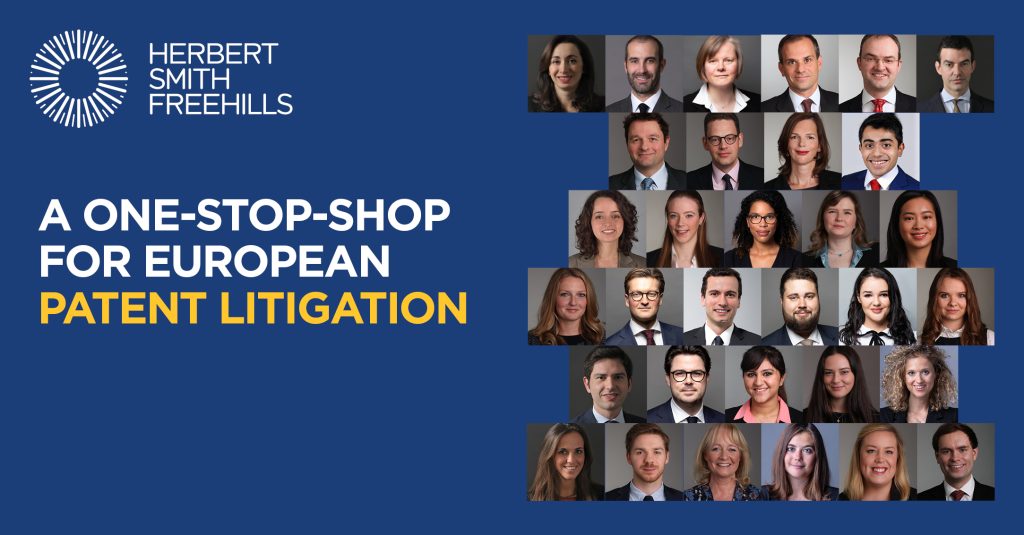Today marks the launch of the new Unified Patent Court (UPC) and unitary patent (UP) system in Europe - the culmination of decades of work, bringing with it fundamental changes to the way in which patents can be litigated in Europe.
Find out more about the UPC, the unitary patent, and how our fully integrated European IP team can help you navigate the challenges and opportunities that the UPC presents on our UPC & UP Hub and follow our UPC & UP blog post series.
The arrival of the UPC
The introduction of the European patent package involving the creation of a single court in which to hear European patent disputes (the Unified Patent Court (UPC)) and unitary patent right (UP), across most of the EU, has been a very long time coming but now it is a reality, patent strategies for businesses functioning in Europe, both in and out of the UPC participating member states will need reconsideration.
The new UP right is now available as an option at grant, covering the 17 UPC EU member states with one patent that will be enforced exclusively through the UPC's centralised system. Those not wishing their current European patents (EPs) and those granting over the next 7 years (the transition period) to be subject to the UPC's jurisdiction, can opt their EPs out of the UPC's jurisdiction, but once the transition period is over, all newly granting EPs will be subject to the jurisdiction of the UPC exclusively.
Our UPC & UP hub will help you examine the issues below and assess their impact on your business:
- How are your existing and future European patents impacted by the new system?
- How can you use the one-stop-shop nature of patent enforcement in the era of the UPC to your benefit?
- What opportunities and risks does the initial parallel jurisdiction of the UPC and national courts over European patents present?
- What risks are there for parties brought into the UPC system as defendants and facing pan-European injunctions and damages?
- What is the picture for unitary patents – a new supra-national patent right for Europe?
- What should your business should be doing now?
How we can help
Our fully integrated, market leading team, is on the ground in France, Germany, Italy and the UK and has decades of experience in running multi-jurisdictional patent litigation in respect of our clients' most valuable products, including experience in the jurisdictions which will inform the UPC's procedure in due course.
We are able to use legal, technical and strategic skills from across our whole European team to give you the best advice on your UPC or national matters, with the qualifications necessary to handle cases whether they are in the UPC or key national courts.
The new UPC court system has jurisdiction over EPs in all UPC participating EU member states (currently 17), but litigation will also need to continue in non-participating EPC states (including the UK and in the seven EU member states that have not yet ratified the UPC Agreement (three of which have declared an intention not to join at all) and in national courts of participating states in relation to EPs opted out of the UPC's jurisdiction.
So, as well as litigation in the UPC, the execution and management of multi-jurisdictional patent litigation, in which our team has unrivalled experience, will still be a key element of patent enforcement in Europe.
For more information and advice on the new system, please contact Laura Orlando, or any of the other key contacts listed below.

Key contacts

Laura Orlando
Italy Managing Partner, Joint Global Head of Intellectual Property, EMEA Co-Head of Life Sciences, Milan

Andrew Moir
Partner, Intellectual Property and Global Head of Cyber & Data Security, London
Key contacts

Laura Orlando
Italy Managing Partner, Joint Global Head of Intellectual Property, EMEA Co-Head of Life Sciences, Milan

Andrew Moir
Partner, Intellectual Property and Global Head of Cyber & Data Security, London
Disclaimer
The articles published on this website, current at the dates of publication set out above, are for reference purposes only. They do not constitute legal advice and should not be relied upon as such. Specific legal advice about your specific circumstances should always be sought separately before taking any action.






